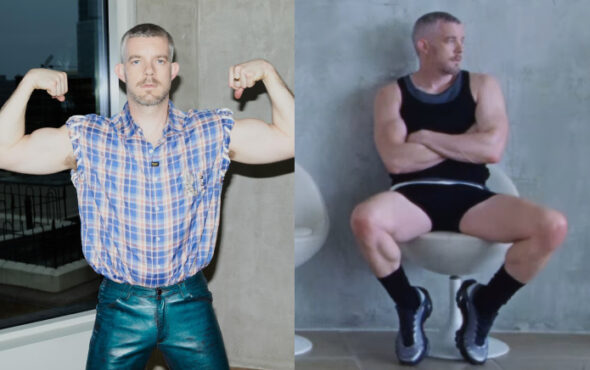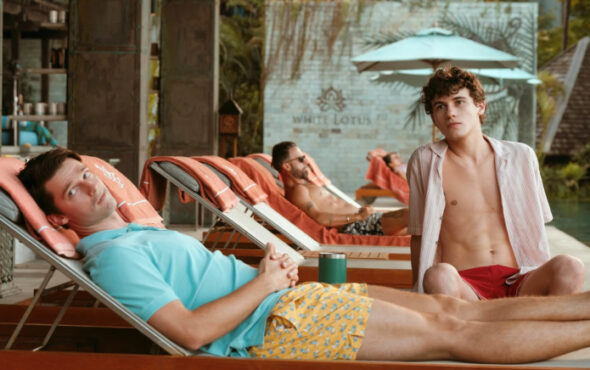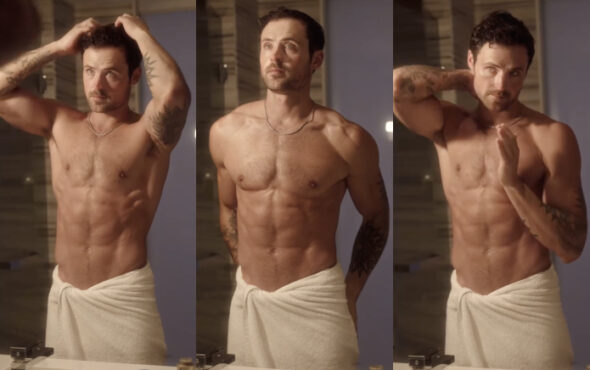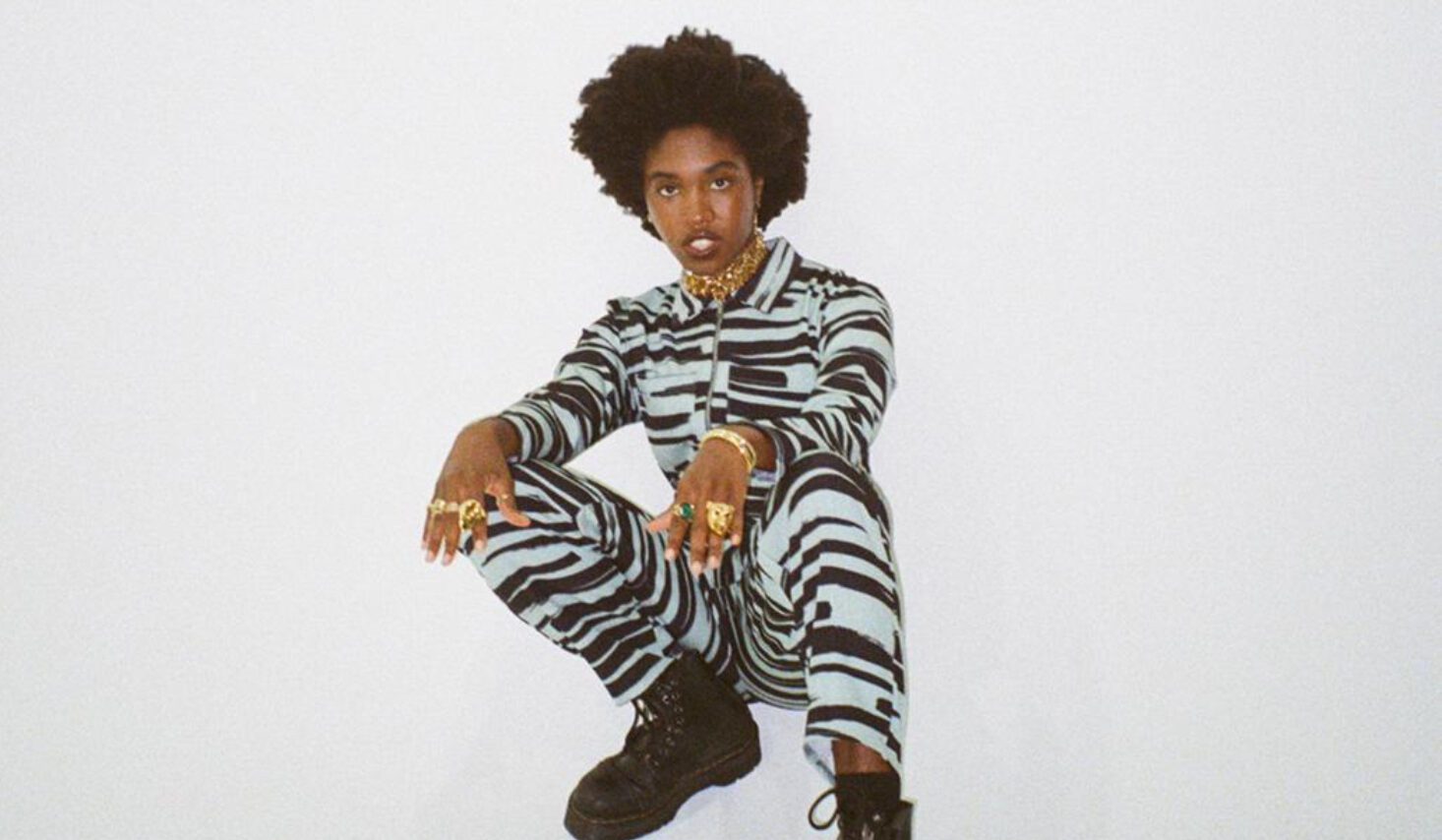
Krystal Lake wants you to learn about the “stuff schools don’t teach”. A Forbes 30 Under 30 flagbearer and TikTok talent with over half a million followers, Krystal is a name to watch out for. Now, you might be thinking, so another creative in their influencer era? Well, yes, but this one is doing something different. The founder of Cut By Krystal, a production company that provides social media services, Lake has become a known face for pushing much-needed education on topics centred on women, LGBTQ+, minorities and mental health. And when she’s not doing that, Lake is taking over as an award-winning filmmaker, and a globe-trotting DJ touring with Ashnikko.
From spinning tracks for the infamously electric blue-haired singer to hanging out with rockstar Willow Smith, Lake’s impact is, well, unmissable. “I’ve been pretty blessed to DJ all over the world, at some of my favourite festivals and venues, and to go on tour with my buddy Ashnikko. Music has driven me since I was a baby,” she says. In fact, Lake’s affinity with music as speaking out stemmed from a school trip to Juilliard. Growing up in New York, the then 12-year-old was taken aback by a jazz band where she truly “fell in love” with music.
“I started studying the artists that gave me chills such as A Tribe Called Quest, Disclosure, Kaytranada, and Young Money. Soon, I became the go-to person to ‘pass the aux’,” she explains. “Years later I bought a cheap DJ set off of eBay and it was a wrap, and DJ Krystal Lake was born! I was hooked and I had the college parties going crazy.”
So, now you’re in on the game plan, keep reading to learn more about Krystal Lake and her mission to shake up the activism scene.
Hi Krystal, it’s great to meet you! Thank you for taking the time to chat with GAY TIMES. How are you doing?
Good, excited, and happy that I’m chatting with the gays.
You’ve been pretty busy lately as an activist and DJ. You’re also a public speaker, online and in-person. Have you found any similarities between being an artist and a community voice?
I focus a lot on culture when I speak, and I do the same in my music. I know I’m connecting to people on such a deep level – a level that is so much bigger than me. My community is going to feel the words of a Little Simz song more than most communities, and my community will understand what ‘10, 10, 10’s across the board’ means without Beyoncé having to say ‘this is for the gays.’ That same community will be there fighting for people of colour, or fighting for LGBTQ+ rights, women’s rights, and overall equality.
When I speak I take my experiences, the stories I’ve heard or witnessed in my community and years of observing or reviewing history, and I bring it to light. Those same stories come alive in music. Whether the crowd needs a song to scream to, hug to, cry to or lift their energy, I know the power behind each of the songs I’m going to play, just like how I know the power behind each word that leaves my mouth when I speak. The similarities are all there because it connects to the main thing that fires me up, which is connecting with my community.
How has social media aided you in amplifying your message?
I reached audiences that I didn’t even know I could reach. I was making TikTok, Instagram, and YouTube posts when I was broke and chilling in my room – little did I know it would reach millions of people. Some folks are fortunate enough to have the funds to book a bunch of flights to talk with people, many are lucky to have personal connections to get them in those spaces. That wasn’t the case for me, but what I did have was social media and a passion for lifting oppressed voices.
I was connecting to people from all over the world, while I sat in my little room with my phone and ring light. Those connections led to real conversations in the comment section, real-life connections with others who related, brands who’d reach out because they want to embark on the same journey, and messages from little Black girls who’d say ‘I hated my dark skin until I watched your video.’ Social media didn’t only amplify my voice, it also made me feel like I’m not alone in this.
Your online content centres on “stuff schools don’t teach”. What does that look like to you?
Teaching more than white history; not calling the queer lovers of a historic leader their ‘close friend.’; asking a student to name five women they learned about in school and the student going ‘ok, easy…’
My high school experience was flooded with learning about white straight men and the stories weren’t even accurate. As a kid, I was glorifying the people who would’ve killed me or saw me as a disgrace as a Black, queer woman. I was taught that Christopher Columbus was a friendly guy who discovered the US and was friends with the Native Americans, or as my teacher would put it ‘the Indians’. I was told Malcolm X was a ‘bad man’ and that’s why we can’t learn about him. So I took it upon myself to learn, and I was shooketh once I found out that the school system was more bent than Megan Thee Stallions’ knees halfway through performing WAP.
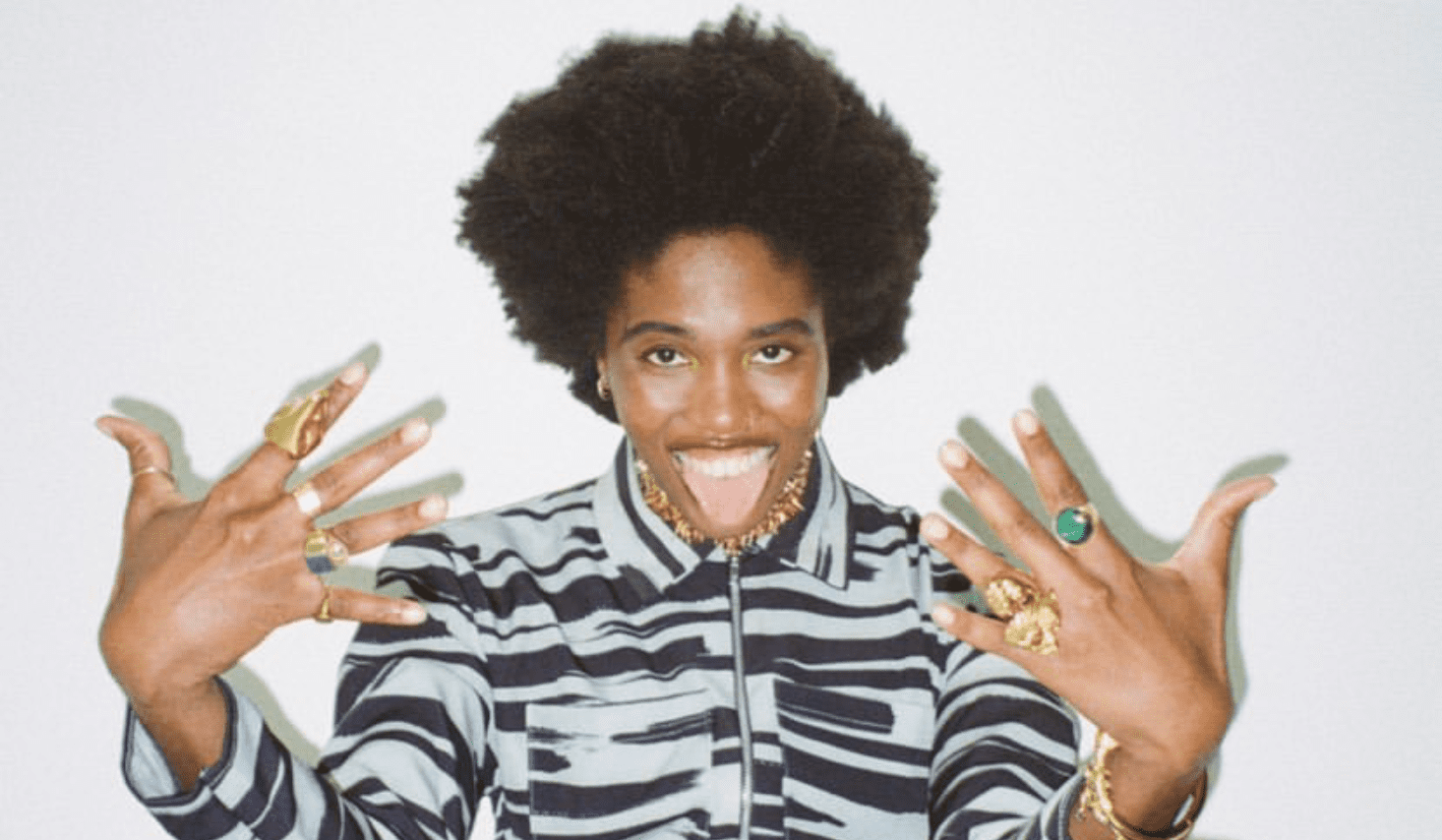
Your work revolves around mental health, identity, and discrimination — why do you choose to address these subjects?
These are topics that are so important to me. I chose these subjects because once I explored them it pulled me out of a really low state. It gave me meaning to life, it made me not hate myself, and it gave me the strength to see the world for what it is, but also recognise the beauty the world can bring. If someone told me to meditate in high school, I’d probably say ‘Yo, shut ya Erykah Badu Ass, Kombucha drinking ass, Eat Pray Love ass up!’ It honestly took me to get to my lowest and download a meditation app (because ‘F it, why not’) for me to see the importance of mental health. That same year I tried out therapy and I thought ‘why isn’t everyone doing this…have you seen the world’ then I thought… ‘oh that’s because society shames us if we do take it.’
Identity and discrimination are just as important to me because the day I felt free was when I stopped listening to society’s views of beauty and avoided adopting the identity society wanted me to have. This forced me to dig deep into myself to find my true self, it also made me love every part of my body and sexuality. Turns out I’m lit, and society couldn’t handle it so they tried to dim my light. So I made it a mission to teach this to everyone else who also doesn’t fit into society’s box.
You’ve made headlines for your political work and music. In terms of supporting the LGBTQ+ community, what are you hoping to achieve with your platform?
I want people to see that there is a whole community of queer pioneers and a whole community that supports them. If you’re not living your truth then life can seem pretty bleak. I want people to question: ‘Am I living life for me, or am I living someone else’s life through me?’
Everything changed when I started living life for me, and sometimes it does feel like you’ve lost everything, but all you’re doing is making space for more quality connections and life experiences. Most importantly you’re making room to know your ‘true self’… and you have a bigger chance of hooking up with that baddie you saw at the gay club.
What’s been the most gratifying moment of your career?
Being a Forbes 30 Under 30 lister. From speaking at the ceremony to the rush of conversations about my work, I was blown away. It felt so good that I was able to bring focus to my community on such an international and prestigious level. I was able to meet so many like-minded people, and dig deeper into how I want to develop my brand.
As a Black queer woman, how has your identity shaped your approach to activism and music?
There are so many profound messages hidden in music and layers of pain that aren’t always explicitly said when activists speak. What I noticed is when you really connect with the message from that music artist or the message from the activist fighting that same fight, then you understand on a pure and deep level, that message hits hard.
What do you want to achieve next in your music and role as a public speaker?
I have a few cute plans that I’ll keep on the down low for now, but let’s just say I want to keep DJing for the communities that I love and I want to continue speaking for the spaces that are focused on moving towards a safe and equal world. I’m having so much fun connecting with my audience through my socials and reaching millions of viewers, but I feel a huge rush of love when I interact with these audiences in real life. This year I’m focusing on getting off-screen. I’m outside, in every sense of the phrase.
